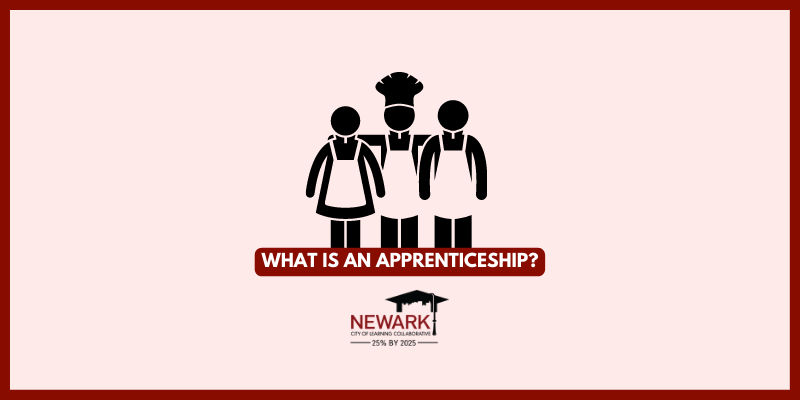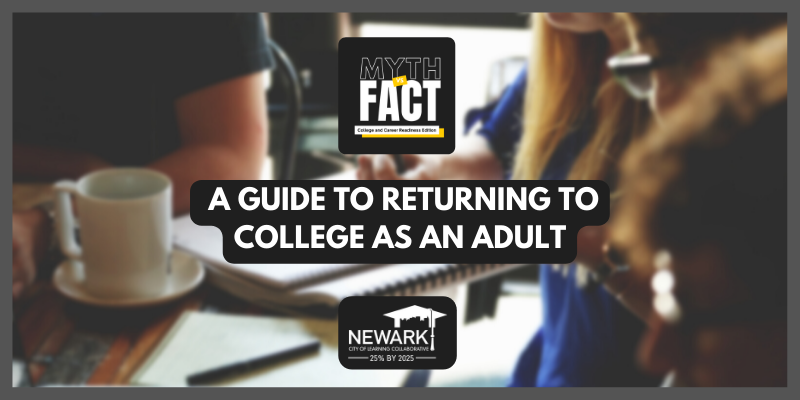![[Video] Make Your Summer Count Towards College and Career Success](https://newarknclc.org/wp-content/uploads/2022/06/make-your-summer-count-header.png)
[Video] Make Your Summer Count Towards College and Career Success

For a written recap of this event, click here.
![[Video] Make Your Summer Count Towards College and Career Success](https://newarknclc.org/wp-content/uploads/2022/06/make-your-summer-count-header.png)

For a written recap of this event, click here.
![[Past Event] Can I Google You? How To Best Represent Yourself On Social Media For College and Beyond](https://newarknclc.org/wp-content/uploads/2022/06/header-image-1.png)
For a recap of this event, click here.
Related: How Your Online Identity Can Affect Your College Admissions


Apprenticeships are only for jobs like construction or manufacturing..
The reality is: Professions across the country hire apprentices! Careers in cutting hair, culinary arts, fashion, herbology and horticulture, computers and electronics, and even beekeeping are all fields where you can start as an apprentice.
Getting a technical degree in one of these fields can seriously elevate your career opportunities and prospects!
Apprenticeships are a way to transfer the knowledge of an older generation to the young workers of the next generation. In other words, apprenticeships are training programs for a skilled profession. Apprenticeships are perfect for people who want to go to trade school, or students who are already in trade school. An apprenticeship is almost like an internship, except the nature of the work apprentices do is different from what interns do. This is mainly because of the differences between career outlooks between trade schools and traditional colleges. Apprenticeships are a way to gain hands-on experience in a field that might not have many training resources.
A field that heavily utilizes the convention of apprenticeship is the hairstyling industry, especially among barbers. At barbershops, an apprentice barber is someone who lacks experience, but who works alongside a Master or Senior Barber, observing and absorbing knowledge, skills, practices, and tactics that they utilize.
So if you are looking for some skill training before entering the workforce, then apprenticeships are a great way to be exposed to trades while earning practical experience, making progress towards your professional certification, and getting paid.

For anyone who is uninterested in a four-year degree, but wants to enhance their skillset, trade school may be the perfect option for you.
Trade schools offer vocational training that can lead to a successful career in less than half the time it takes to complete a bachelor’s degree. At one of these institutions, you can learn a new skill or craft and get hired for it all within a few months to two years.
New Jersey has some of the best trade schools with all kinds of programs to choose from. Whether you are interested in carpentry or healthcare, or anything that may fall in between, there is a New Jersey school that’s right for you.
There are a few ways that you can pay for trade school. You can either pay in cash by saving up and charging the amount due for your tuition every semester. This is the most straightforward, but also the most immediately expensive.
You can enroll in a payment plan that splits up your tuition costs throughout the months of each semester you enroll in. This makes sense if you are working and are earning a steady income, but would rather not pay in full.
Other options include filing for financial aid. Contrary to popular belief, trade school students are eligible for financial aid through FAFSA! It is not limited to Bachelor’s degree or post-graduate degree programs. The Free Application for Federal Student Aid (FAFSA) will show you if you are qualified for financial aid or not. If not, you can see which student loans you may qualify for to cover the costs of your term bills.
You can also apply for scholarships, grants, and other financial awards to help fund your technical education.
Hopefully, this list helped you create an idea of where you want to take your career with trade school. These are the best five trade schools in New Jersey, and programs that they offer, so that you can understand your options when it comes to trade school. Depending on what you like and the career you want, these schools and programs can help bring your dreams to reality!

Whether you are looking to get started on your education, finish it, or switch careers, it’s never too late to go to college. The Lumina Foundation reports that 38 percent of undergraduate students are older than 25, 58 percent work while enrolled in college, and 26 percent are raising children. College is a great place for working professionals, and enrolling might help you advance professionally.
This guide will help you assess the benefits and the potential drawbacks of going to college. Hopefully, this will help you make an informed decision about whether college, at the moment, is right for you!
This is one of the hardest obstacles for most adults returning to school.
Everyone has a personal life filled with details, people, and problems unique to themselves. It is important to recognize that college is a multi-year commitment, and should be treated like a full-time job, since that is exactly what it aims to prepare you for.
Be sure to find flexibility in your schedule, find proper child care, identify means of transportation, and make the necessary life adjustments to be fully ready to commit to college. College is all about commitment and sacrifice, so be ready to make some clear decisions about what YOU want. Remember, it is temporary and when college is complete, you will be reaping the benefits.
Since it’s a big leap, many people will be supportive of your decision, so try to find a support system that can give you the freedom to learn. This can come from family or even your current employer. For example, Chipotle offers tuition reimbursements to several qualifying employees!
Whether you are starting or finishing a degree, looking to change your career, or pursuing knowledge for its own sake, make sure you can commit to your education by assessing what’s going on in your life first.
College is a great way to get ahead professionally. These days, on-demand skills that young students learn in college make them more employable for entry-level jobs. However, you don’t have to be young or right out of high school to gain these skills. In fact, most employers prefer people with more experience, so why not use it to your advantage?
If you want to change your career or start a career in a different field, then going to college can help you bridge gaps in your experience or knowledge. It will get you ready for the job of your choice!
Education has never been more flexible! You can enroll either full-time or part-time into most programs depending on your commitments. Additionally, nowadays online school is becoming much more prevalent, so you have the possibility to take classes and learn from the comfort of your own home. Education is the most convenient it has ever been, so it only makes sense to take advantage of it, especially if you have obligations at home that you cannot leave unattended.
There are a few ways that you can pay for college. You can either pay in cash by saving up and charging the amount due for your tuition every semester. This is the most straightforward, but also the most immediately expensive.
You can enroll in a payment plan that splits up your tuition costs throughout the months of each semester you enroll in. This makes sense if you are working and are earning a steady income, but would rather not pay in full.
Other options include filing for financial aid. The Free Application for Federal Student Aid (FAFSA) will show you if you are qualified for financial aid or not. If not, you can see which student loans you may qualify for to cover the costs of your term bills.
You can also apply for scholarships, grants, and other financial awards to help fund your college education.
Always make sure you have a plan ready to enact in order to pay for college. If you cannot afford it, and do not wish to take out a loan, it might not be the right time for you to go to college.
College isn’t just a program meant to get you a job, it is an educational institution where you can focus and cultivate your interests to develop professional skills. It is important to set educational goals before and during your college education.
First of all, it is important to choose a major that works for you. The process of finding a major should include evaluating your academic interests and monitoring on-demand skills and employment trends to see what jobs are out there. For more information on how to choose the right major, click here.
Next, find opportunities, like clubs, organizations, or societies, that can help you advance professionally in your chosen field. This way, you can be part of a cohort of like-minded individuals, which will almost guarantee your collective success.
Make long-term goals and adjust your academic behavior to satisfy these goals. For example, if you want to be a researcher then make sure to take classes in statistics and research methods. Make sure to have a good relationship with your advisors and counselors to ensure a smooth process.
It can be tough to balance life with school, so something that every adult should utilize to keep track of their time is a planner! Your planner should map out your entire week and split up your tasks by the hour. Learning time management skills, and applying them to your own life, is one of the best ways to progress and accomplish more. Always match your tasks to satisfy the goals you set.
Once you are ready to apply for schools, research and visit schools that seem the most appropriate for your personality and academic interests. This should be entirely up to you, with the help of some expert guidance (like a college graduate you trust or a counselor). It is extremely important to end up where you want to end up for college. Before applying, make sure you have the required documents, test scores, and anything else that the application may require from you to attend the institution. Once you complete your application, all you can do is hope for the best!
Once you’re in, you’re in! Utilizing the above strategies, you should have no trouble being an excellent student. Meet regularly with your advisors to update and monitor your academic goals, and you should be all set! Just remember to keep up with your deadlines, and you’ll be graduating before you know it! Good luck!